A couple of weeks ago, I took part in a panel discussion during Lesley University’s 2020 Creative Writing MFA winter residency. The topic: “Writing in a Time of Climate Anxiety.” Joining me on the panel was author and photographer Tony Eprile, children’s author Tracey Baptiste, and poet and environmental activist Andrea Read.
What Was on Everyone’s Mind?
Tony shared some of his gorgeous photographs of wild places, green spaces, and rare species. He opened up about his fear that the next generation will grow up having no knowledge that these species and places ever existed. What kind of psychological and social impact will losing our green spaces have on our children, he asked?
Tracy talked about how she dealt with the theme of climate change and loss of habitat and home in the third book of her Jumbies series. She revealed that sea-level rise is predicted to eat up her childhood home of Trinidad. The island is going to vanish beneath the waves, where it might become mythologized like Atlantis in the minds of future generations. Who will she be, Tracey wondered, without her home?
Andrea spoke about her experience purchasing 500 acres of clear cut land in Maine. She (and others) planted thousands of hardwood saplings on the site to restore the native habitat. The farmhouse and barn on the property sat atop a plot of land whose topsoil had been stripped off and sold. Andrea and her husband used permaculture techniques to bring it back to a lush and productive garden in a single season. She then co-founded an art and nature nonprofit called the Newforest Institute (no longer in operation).
I focused on the power of writers (and all creative artists) to inspire the imaginations of the general public. I pointed out that, when it comes to writing about climate change, we have generally failed to do our jobs well. For decades, there has been a collective failure of the imagination. I challenged the audience of MFA candidates to do better.
With Great Power Comes Great Responsibility
 We are, as the title of Jonathan Gottschall’s book indicates, storytelling animals. The stories we read (and write) have the power to influence cultural values. They can spark technological innovation. They can inspire people to take action and make changes. Consider the works of H. G. Wells, Arthur C. Clarke, Jules Vern, Isaac Asimov, Jack London, Ralph Waldo Emerson, Mary Shelley, among others. Their stories changed the people who read them.
We are, as the title of Jonathan Gottschall’s book indicates, storytelling animals. The stories we read (and write) have the power to influence cultural values. They can spark technological innovation. They can inspire people to take action and make changes. Consider the works of H. G. Wells, Arthur C. Clarke, Jules Vern, Isaac Asimov, Jack London, Ralph Waldo Emerson, Mary Shelley, among others. Their stories changed the people who read them.
Writers are a rare and valuable breed. We’re blessed with active imaginations paired with an ability to use the written word in ways that let others imagine things they might not otherwise. And sometimes, when we do things right, our stories influence humanity’s path forward. Consider Jules Verne, who wrote about men flying to the moon in rocket ships in 1865. Or Mary Shelley. To this day, Frankenstein invites readers to consider what consequences may result should science and morality become uncoupled. Michael Crichton updated that cautionary tale for modern readers. He got people thinking about the unforeseen repercussions of genetic engineering technologies and demanding regulation and oversight.
When it comes to imagining mankind’s future in the face of large-scale environmental disasters, however, writers have historically given the topic only the most superficial of examinations.

Most of what’s been written thus far are plot-focused action and adventure stories. While such stories definitely have their place, they are meant to be an escape for readers or viewers. They are entertainment. They are NOT stories intended to spark reflection in the hearts and minds of the masses.
Dig Deeper

What we need right now are stories that will get people engaged and thinking, not checking out. Only when people engage with a problem and start thinking about it can they then solve it. If you, as a writer (or an artist), feel anxious when you think about climate change, dig into your emotions and unpack them. Use that brilliant imagination of yours to visualize your fears in a visceral way.
Worried about widespread famine, war, disease, a population crash? Nuclear Annihilation? Write about it, but do so in a way that is emotionally honest and that has character, not plot, at its core. Make it believable. Draw your audience in, connect readers to your characters. Write a narrative that strikes a deep emotional cord and demands reflection for years, decades, centuries to come.
 We need climate change stories that will get people thinking–really thinking–about the messy moral and ethical issues tangled up in large-scale ecological disasters. I’m thinking of stories like Cormac McCarthy’s The Road, or P. D. James’s Children of Men. More recently, HBO’s dramatic series Chernobyl highlighted what a failure of leadership could bring about during an environmental crisis.
We need climate change stories that will get people thinking–really thinking–about the messy moral and ethical issues tangled up in large-scale ecological disasters. I’m thinking of stories like Cormac McCarthy’s The Road, or P. D. James’s Children of Men. More recently, HBO’s dramatic series Chernobyl highlighted what a failure of leadership could bring about during an environmental crisis.
Is There Space for Happy Endings?
I would argue yes. Showing hopeful outcomes is not just okay but necessary, as long as they’re handled in ways that are emotionally honest.
 Neal Shusterman’s YA novel Dry is an excellent example of how to write a hopeful ending that doesn’t patronize readers. Shusterman wrote about characters uniting despite differences. They pooled their resources, developed believable solutions, and then implemented them successfully. But they made all kinds of mistakes along the way. They suffered, and they almost failed. Shusterman used his power as a writer to make his readers care. He made them WANT to avoid a catastrophe. And isn’t that the point? Because if we can divert the disaster, we can avoid the suffering that will come with it.
Neal Shusterman’s YA novel Dry is an excellent example of how to write a hopeful ending that doesn’t patronize readers. Shusterman wrote about characters uniting despite differences. They pooled their resources, developed believable solutions, and then implemented them successfully. But they made all kinds of mistakes along the way. They suffered, and they almost failed. Shusterman used his power as a writer to make his readers care. He made them WANT to avoid a catastrophe. And isn’t that the point? Because if we can divert the disaster, we can avoid the suffering that will come with it.
A Call to Action!
 If you’re a writer and you’re feeling anxious in this time of climate change, pick up your pen and do what you do best. Write a story daring enough and honest enough to inspire the masses, influence thought and maybe change the future. Be the next Mary Shelley, the next H. G. Wells, the next Jules Vern. That was my message to the audience at the panel discussion two weeks back, and that’s my message to every writer who reads this post.
If you’re a writer and you’re feeling anxious in this time of climate change, pick up your pen and do what you do best. Write a story daring enough and honest enough to inspire the masses, influence thought and maybe change the future. Be the next Mary Shelley, the next H. G. Wells, the next Jules Vern. That was my message to the audience at the panel discussion two weeks back, and that’s my message to every writer who reads this post.
Do you feel anxious whenever you think about climate change? Have you attempted to explore your fears through your writing? If not, maybe it’s time to start.

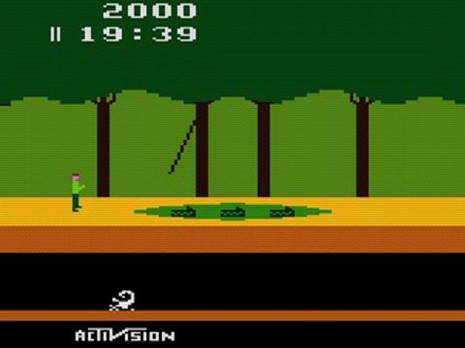

 Back in my early 20’s, right around the time I got married, I bought a copy of Stephen King’s semi-autobiographical craft book
Back in my early 20’s, right around the time I got married, I bought a copy of Stephen King’s semi-autobiographical craft book 





 I did it. I graduated. I am a creative writing “master,” which is a little weird to write. The title “novice” would probably be more accurate. But, two days out from having received my handshake and diploma (not really, just a certificate. The diploma will arrive in the mail a month from now), I am feeling most grateful for the people I met and the relationships I forged. If anyone ever questions my choice to pay for a masters in creative writing, citing the fact that I could have learned “all that stuff” from craft books and YouTube, I will simply smile at them and give them a pacifying nod. I will never regret my choice to do this because if I hadn’t attended Lesley, I would probably never have met and become close friends with the people I did. And isn’t that what life is all about? The people we meet? The relationships we form? The communities we build? It is for me.
I did it. I graduated. I am a creative writing “master,” which is a little weird to write. The title “novice” would probably be more accurate. But, two days out from having received my handshake and diploma (not really, just a certificate. The diploma will arrive in the mail a month from now), I am feeling most grateful for the people I met and the relationships I forged. If anyone ever questions my choice to pay for a masters in creative writing, citing the fact that I could have learned “all that stuff” from craft books and YouTube, I will simply smile at them and give them a pacifying nod. I will never regret my choice to do this because if I hadn’t attended Lesley, I would probably never have met and become close friends with the people I did. And isn’t that what life is all about? The people we meet? The relationships we form? The communities we build? It is for me.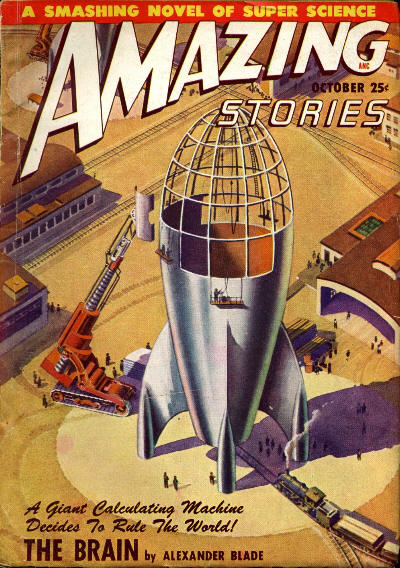
 It’s true! From an evolutionary standpoint, the brain is an organ with a singular purpose. To keep us alive. An essential part of “not dying” is noticing any kind of change to the current situation.
It’s true! From an evolutionary standpoint, the brain is an organ with a singular purpose. To keep us alive. An essential part of “not dying” is noticing any kind of change to the current situation.

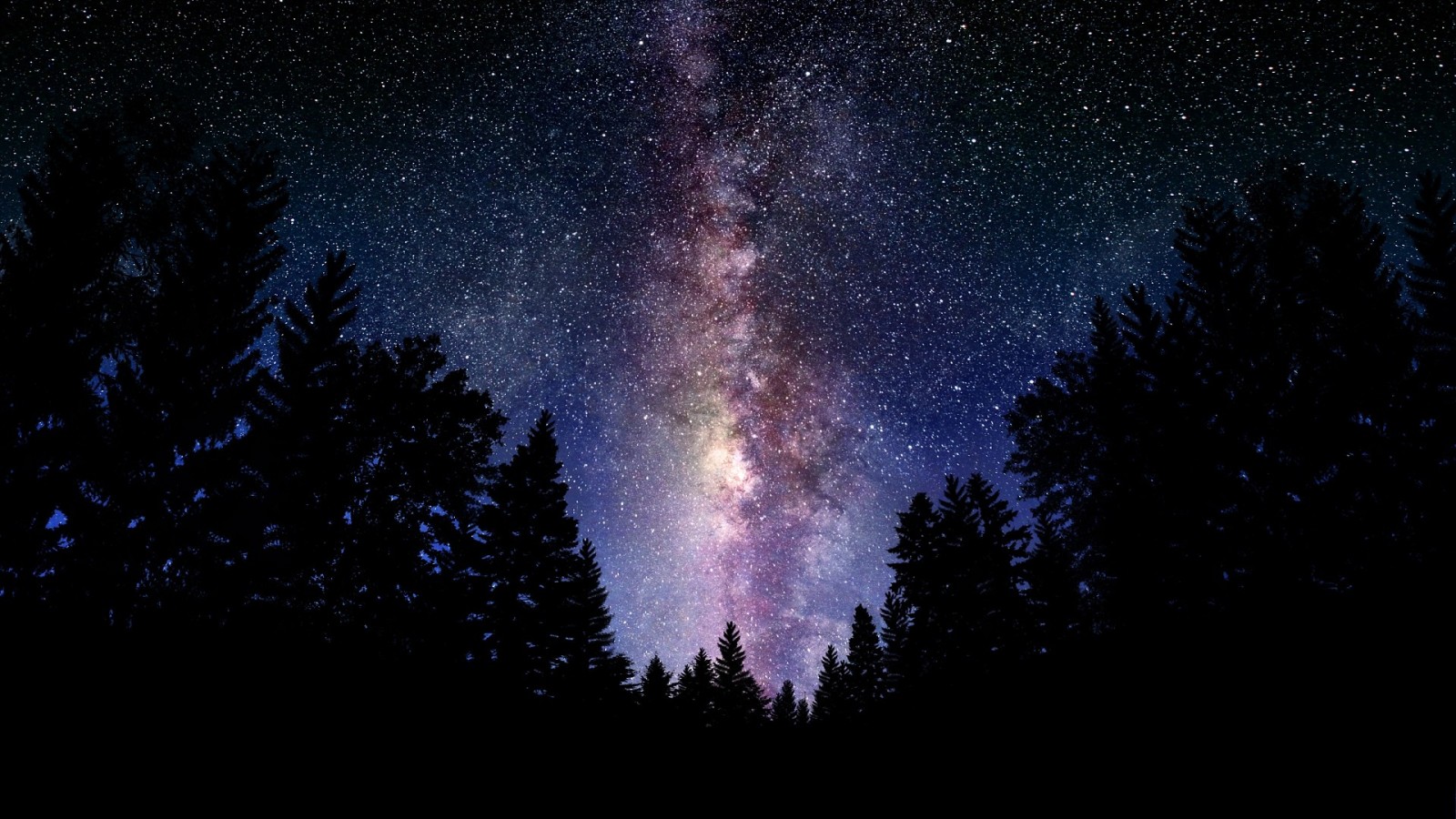
 I own a book called “
I own a book called “ The writing process for grad school is interesting, especially during the thesis semester. Most students enter their final semester with a first draft of their thesis already written. They’ll spend four months revising it before submitting it. They’re traveling a well-worn path by that point.
The writing process for grad school is interesting, especially during the thesis semester. Most students enter their final semester with a first draft of their thesis already written. They’ll spend four months revising it before submitting it. They’re traveling a well-worn path by that point.




 I can see again. Maybe I don’t have to die out here all alone in the cold, unforgiving forest of my mind. The book I’m writing is my destination once again. Chris Lynch had been my shelter. A few close writing-friends I’ve connected with through the program had been my water, my spouse is my fire, and all the fine books I’d been reading this semester have been my food.
I can see again. Maybe I don’t have to die out here all alone in the cold, unforgiving forest of my mind. The book I’m writing is my destination once again. Chris Lynch had been my shelter. A few close writing-friends I’ve connected with through the program had been my water, my spouse is my fire, and all the fine books I’d been reading this semester have been my food.
 This month’s
This month’s 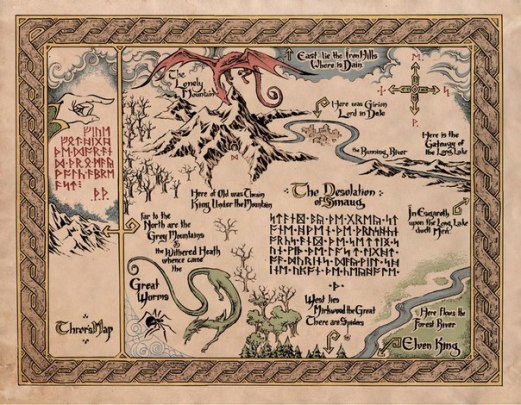

 Writing is like baseball. Most of the time, you recognize the pitch coming in and you manage a solid single when you swing at it. Occasionally, you strike out. Every once in a great while, though, you hit a grand slam. Or, if you’re new at it, like me, you dream about hitting a grand slam and when it’s your turn at bat, you give it everything you have and swing for the fences.
Writing is like baseball. Most of the time, you recognize the pitch coming in and you manage a solid single when you swing at it. Occasionally, you strike out. Every once in a great while, though, you hit a grand slam. Or, if you’re new at it, like me, you dream about hitting a grand slam and when it’s your turn at bat, you give it everything you have and swing for the fences.  I just got back from my amazing, energizing, mad-capped
I just got back from my amazing, energizing, mad-capped 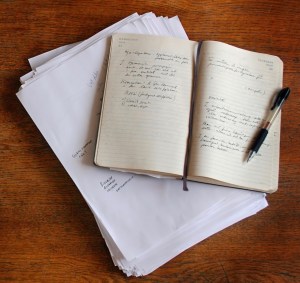 The workshop sessions are one of the highlights of residency for me. I absolutely love reading other people’s writing, digging into it deeply, and then discussing it with other serious and passionate writers. I also love receiving feedback on my stuff. Even when folks point out more problems than positives in my work, I find the experience hopeful.
The workshop sessions are one of the highlights of residency for me. I absolutely love reading other people’s writing, digging into it deeply, and then discussing it with other serious and passionate writers. I also love receiving feedback on my stuff. Even when folks point out more problems than positives in my work, I find the experience hopeful.  Six days before my residency workshop pieces were due (we need to write two pieces, each between 3,000 and 6,500 words long), I contacted Chris Lynch with a question. It was via email, but this is how the conversation sounded in my imagination (I may have taken extreme liberties with the details).
Six days before my residency workshop pieces were due (we need to write two pieces, each between 3,000 and 6,500 words long), I contacted Chris Lynch with a question. It was via email, but this is how the conversation sounded in my imagination (I may have taken extreme liberties with the details).



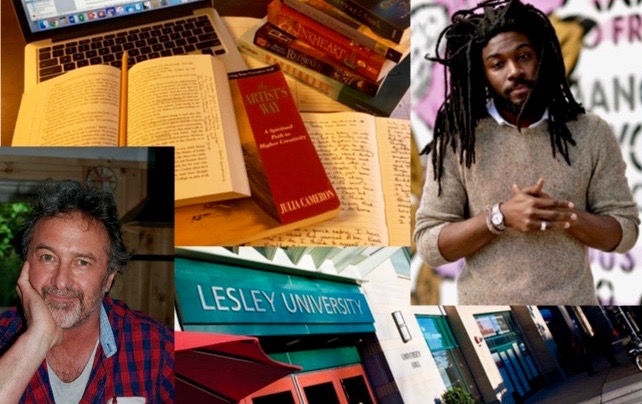
 Over the past week, forward progress on my WIP has slowed to a snail’s pace. I need to figure out what’s going on. What has changed? What can I do to unblock myself?
Over the past week, forward progress on my WIP has slowed to a snail’s pace. I need to figure out what’s going on. What has changed? What can I do to unblock myself? 
 Here’s what that sudden, stark realization felt like. Imagine you’re at the grocery store, heading back to your car carrying two extremely heavy and overpacked bags of foodstuffs, and you’re feeling stoked because you hit some sweet sales and managed to stock up for the week and then some. You’re crossing a busy throughway in the parking lot when the bags let go. All at once, the bottoms rip wide open and vomit your stuff all over the pavement. Cans are rolling everywhere. The milk carton is ruptured. A white puddle expands at your feet. Dented boxes, broken eggs, bruised apples racing away, and cars coming at you from both directions. What you thought of just moments ago as an awesome bundle of tasty treats now looks like an embarrassing heap of trash.
Here’s what that sudden, stark realization felt like. Imagine you’re at the grocery store, heading back to your car carrying two extremely heavy and overpacked bags of foodstuffs, and you’re feeling stoked because you hit some sweet sales and managed to stock up for the week and then some. You’re crossing a busy throughway in the parking lot when the bags let go. All at once, the bottoms rip wide open and vomit your stuff all over the pavement. Cans are rolling everywhere. The milk carton is ruptured. A white puddle expands at your feet. Dented boxes, broken eggs, bruised apples racing away, and cars coming at you from both directions. What you thought of just moments ago as an awesome bundle of tasty treats now looks like an embarrassing heap of trash.  Yes, as it turns out. Perfection is too much to ask, and my self-imposed, unattainable new expectations have bogged down my writing process. My muse has curled up in the fetal position at my feet beneath my desk. She’s utterly useless under pressure, I guess. Meanwhile, I am getting hung up on every single sentence I try to write. Is this description strong enough? Are these verbs punchy enough? Am I rambling? Should I cut this? Do I need to elaborate here? Why’s there so much dialogue in this scene? What the H am I doing?
Yes, as it turns out. Perfection is too much to ask, and my self-imposed, unattainable new expectations have bogged down my writing process. My muse has curled up in the fetal position at my feet beneath my desk. She’s utterly useless under pressure, I guess. Meanwhile, I am getting hung up on every single sentence I try to write. Is this description strong enough? Are these verbs punchy enough? Am I rambling? Should I cut this? Do I need to elaborate here? Why’s there so much dialogue in this scene? What the H am I doing?